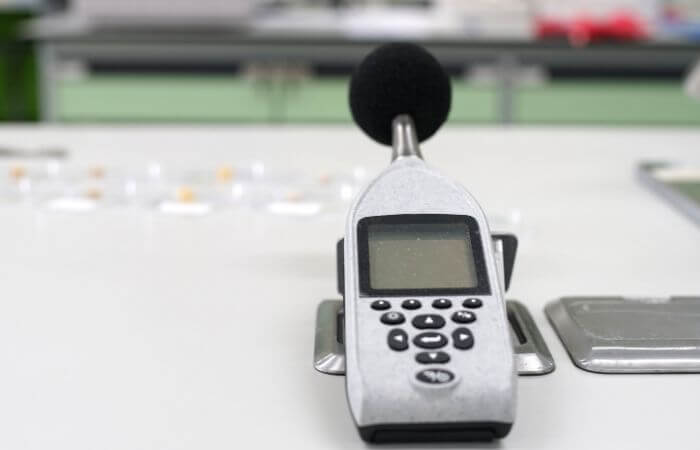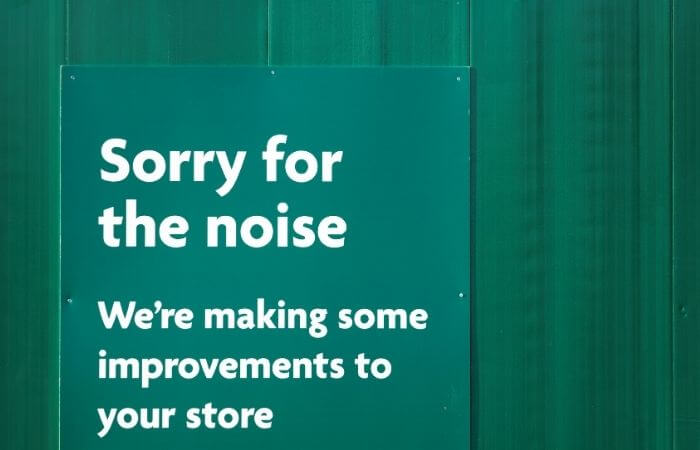If you’ve ever been to a noisy restaurant with a group of friends and you’ve struggled to hear what anyone is saying due to the noise then you will appreciate the work of acoustic consultants.
An acoustic consultant (also known as Acousticians) would go into that restaurant and advise them on materials to use which create a nice acoustic ambience which dampens noise and makes it easy to talk to hold a conversation.

Acoustic consultants are commonly hired to advise on ways to improve the acoustics of places like hospitals, universities, schools, offices, auditoriums, performing arts centers and more.
To do this they will carry out assessments of noise and vibration levels and then offer advice on how the acoustics of the building or room can be improved.
Acoustic consultants are often consulted by engineers and architects during the design stage of new buildings to ensure that the designs and materials used create a good acoustic environment.
What Does An Acoustic Consultant Actually Do?
Acoustical consultants carry out a range of tasks, the specifics of exactly what they do will vary depending on what they specialize in (more on that below) however some examples of things that they will generally do include:
1. Acoustic Surveys & Assessments
An acoustic survey involves using sound level meters and hypersensitive environmental microphones as well as specialist environmental microphones to build a picture of the sound environment of an area.
2. Review Nuisance Noise
The acoustic surveys mentioned above may be carried out in many different scenarios, one case where they are often used is in response to persistent nuisance noise complaints.
For example from a nightclub, bar or restaurant.

They can be used to assess whether or not the venue is in breach of noise regulations.
3. Monitor Vibrations
When building work is proposed in areas that are close to things like railways then an extensive assessment looking into the impact of groundborne transmissions must be undertaken.
There are different guidelines regarding acceptable vibration levels for residential properties, commercial use and public-use buildings.
4. Compliance Tests
Failing to build properties or manage noise in line with noise regulations can result in costly fines or the need to carry out building work to rectify acoustic issues.

Compliance tests involve checking that buildings meet the regulations required of them.
5. Advising Architects & Engineers
Acoustic consultants work closely with architects on new designs to ensure that the structural shape doesn’t create noise traps or exacerbate potential echo problems.

They also advise engineers on materials that should and shouldn’t be used for acoustic purposes.
Types Of Acoustic Consultants:
There are many different areas that an Acoustician can specialize in, these include:
1. Architectural Acoustics
Architectural Acoustics Consultants deal with sound and vibration in buildings.
They perform acoustical analysis of new building designs and advise on acoustical criteria what needs to be met and how to go about meeting the criteria.
They also consult on pre-existing buildings that have acoustic problems.
2. Product Noise Control
Hoovers, air purifiers, hairdryers, kettles, lawnmowers and countless other products make noise and plenty of it.
Acoustic consultants working on product noise control are responsible for assessing the noise output of a variety of products and ensuring that noise levels do not exceed regulations.
They will also advise on steps that can be taken to minimize noise.
3. Environmental Noise
Consultants specialising in environmental noise will assess noise polution levels and determine if they are acceptable by noise regulation standards.
They also do environmental impact assessments and will frequently stand as experts witnesses in public inquiries relating to noise issues.
4. Audio Engineering
Put simply audio engineering is the technical part of recording sound.
An Audio Engineering Consultant will typically be involved in helping to design and create new audio pieces or musical technology.
For example, a film producer may want a certain type of sound for a film score, an audio engineering consultant will be able to advise on exactly how to achieve the desired sound.
5. Underwater Acoustics
Sound can travel for miles and miles underwater, underwater acoustics are therefore an important naval and marine technology.
Underwater acoustics can be used to find fish, work out how deep a water body is, seach for oil and more.
Consultants working in this field may specialize in developing sonar equipment or conducting tests and experiments.
6. Speech & Hearing
There are many roles for acoustic consultants which relate to speech and hearing, a couple of examples are:
- Speech technologists help build technology that is able to better process and understand human speech as well as helping computers to be able to speak more naturally.
- Forensic Phoneticians help legal teams and the police in analyzing speech samples.
7. Musical Acoustics
A Musical Acoustics consultant is typically responsible for things such as modeling and improving the acoustics of concert venues and theatres in order to improve human perception (make it sound better) of music and sound in the venue.
Musical Acoustics consultants may also be consulted in the development of electric instruments as their understanding of how different instrument types will sound in different spaces helps designers achieve the type of sound they want their instrument to have.
8. Ultrasound
Acoustic consultants working with ultrasound are responsible for helping to develop ultrasound products.
These can be used for a variety of things from baby scans to assessing the contents of a food item.
How Much Do Acoustic Consultants Earn?
According to Payscale.com the median salary of an Acoustic Consultant is $60,000.
Salaries in the 75th percentile and above earn over $234,000 annually.
How To Become An Acoustic Consultant
To become an acoustic consultant you will need a solid grasp of maths and/or physics.
Typically you will need to be educated to a degree level in one of these fields (or similar):
- mathematics
- physics
- engineering
- acoustics
Applicants with degrees in other fields such as:
- environmental sciences
- music
- audio technologies
..may require further training such as a diploma before they will be considered for acoustic consultant roles.

It is a good idea to get work experience within the field if you are committed to getting a role in the industry as this will help you stand out from other applicants.
Acoustic Consultancy Companies
If you’re looking for a good acoustic consultant to help you with a noise problem or you’re looking for job opportunities then below are some worth considering:
Acoustic Consultants In The USA:
We also recommend you view the database of the National Council Of Acoustic Consultants to find a consultant near you.
Acoustic Consultants In The UK:
We also recommend you view the database of the Association of Noise Consultants to find a consultant near you.
Acoustic Consultants In Canada:
We also recommend you view the database of the National Council Of Acoustic Consultants and use the filter to adjust it to Canada only, to find a consultant near you.
Acoustic Consultants In Australia:
You can also view member firms of the Association of Australasian Acoustical Consultants for more options.
As an Amazon Associate I may earn a small fee from qualifying purchases at no extra cost to you. This helps us run the site, so thanks for your support!